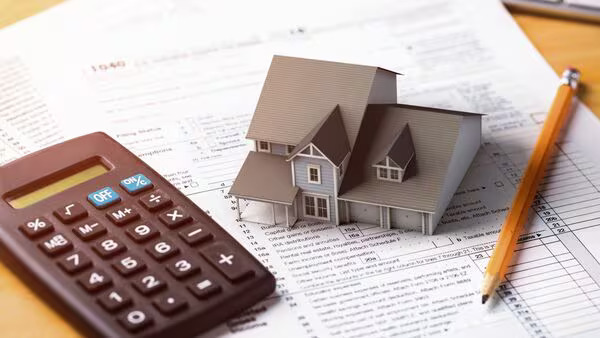Section 54F of Income Tax Act in India offers tax relief on long-term capital gains from selling non-residential assets by reinvesting proceeds into residential property. With real estate transactions rising—housing sales up 15% in 2024, per IBEF, this exemption is a key tax-saving tool. How does it work, and who qualifies? Let’s break it down.
What Is Section 54F?
Section 54F provides capital gains tax exemption when you sell any long-term capital asset (other than a house) and invest the entire sale consideration in a residential property. To qualify:
- You must be an individual or HUF.
- The asset sold must be a long-term capital asset, held for more than 36 months.
- You must purchase one residential house in India within 1 year before or 2 years after the sale, or construct one within 3 years.
Important condition: On the date of sale, you shouldn’t own more than one residential house (other than the new one).
How the Capital Gains Exemption Works?
Under Section 54F, if you invest the entire net sale consideration, your entire capital gains will be exempt. However, if you invest only a part of it, the exemption is proportional.
Formula: Exemption = Capital Gains × (Amount Invested / Net Consideration
For example, if you sell land for ₹50 lakhs and have capital gains of ₹20 lakhs, and invest ₹25 lakhs in a house, you get full exemption. But if you invest only ₹15 lakhs, then only ₹6 lakhs (i.e., 20 × 15/50) of your gain is exempt.
Note: The new house must not be sold within 3 years, or the exemption will be reversed.
Key Benefits and Exemption Limits:
This section is especially useful in real estate tax planning, helping investors reduce or even eliminate capital gains tax liability. The exemption applies regardless of whether the asset sold was a plot of land, unlisted shares, or even jewellery—making it more versatile than Section 54, which is limited to sale of residential property. Additionally, if the investment is not made immediately, taxpayers can deposit the amount in a Capital Gains Account Scheme (CGAS) to claim the exemption.
Common Mistakes to Avoid:
Even though Section 54F offers great benefits, small mistakes can lead to a loss of exemption:
- Missing the deadline: Not investing within the allowed time frame.
- Buying a second home: Owning more than one house at the time of sale disqualifies you.
- Not using full sale proceeds: Remember, the exemption is based on sale value, not just gains.
Moreover, if the new house is sold within 3 years of purchase or construction, the exemption claimed earlier will be revoked and taxed as capital gain in that year.
Conclusion:
Section 54F of Income Tax Act in India offers a powerful way to save taxes while investing in a home, but demands strict adherence to rules. With timely investment and careful compliance, you can unlock significant tax savings. With India’s housing trends pointing upward, this exemption becomes a valuable tool for smart financial planning. Ready to plan your taxes? Explore more financial insights now!
– Ketaki Dandekar (Team Arthology)
Read more about Section 54F here – https://cleartax.in/s/invest-multiple-capital-gains-on-buying-new-house-property
